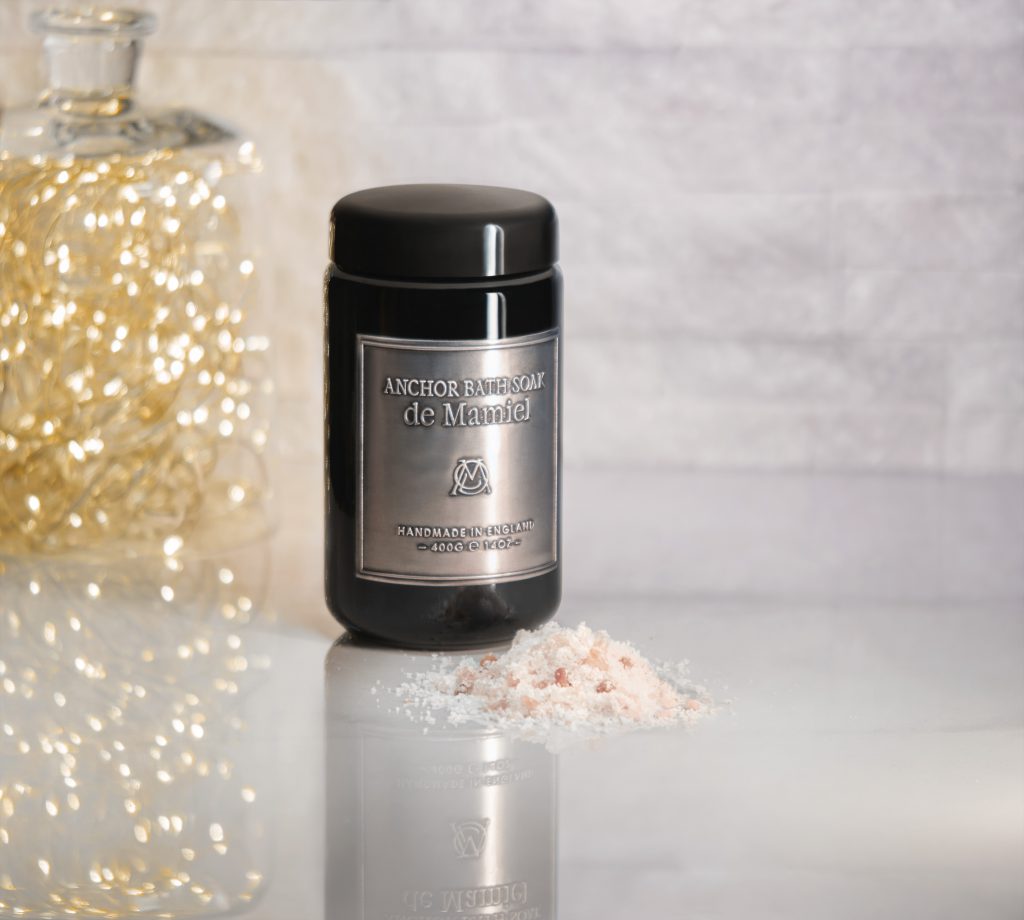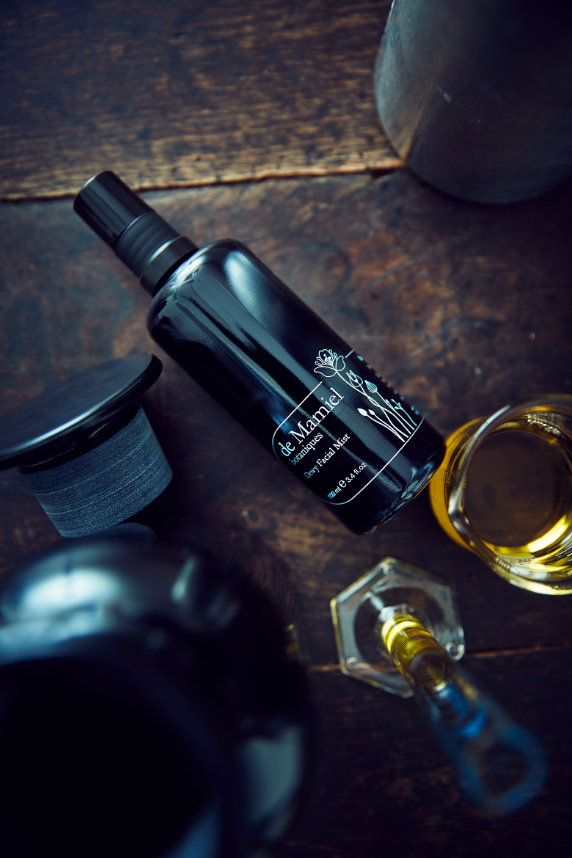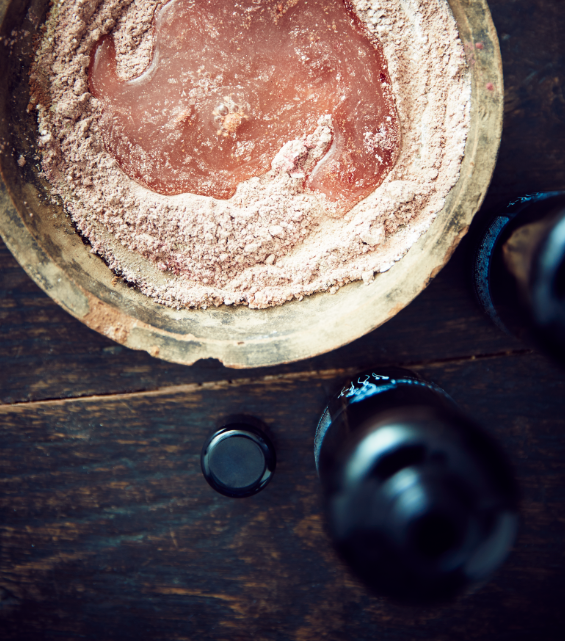With the cold snap that always makes an appearance this time of the year, many of us have taken to our bathtubs for a relaxing evening soak. It’s on these cold days that a bath becomes even more enjoyable. Japanese bathing culture is a great example of ‘well being’- treating both the body and mind at the day’s end. Did you know that through onsen visits and stays in Japanese traditional inns, the number of bath lovers is growing?
In Europe and the US, where showers are the norm, the number of bath-lovers is growing. One of these people is Annee de Mamiel, founder of the British skincare brand de Mamiel, which Candlewick imports and distributes. Annee places great importance on bathing, and has developed a bath salt that is truly an experience.
Developed with deep knowledge of western aromatherapy and oriental medicine, de Mamiel launched their Anchor Bath Salts on January 5th. The three bath salts are blended with the same essential oils as Anchor Balm S from the Night & Day Oil Series.
A warm bath has a soothing and energising effect on blood flow. It also raises the body temperature and helps to strengthen circadian rhythms. The body’s core temperature normally rises during the day and falls during the night. It’s this change in body temperature that stimulates the release of melatonin, which tells the body that night is coming. Surround yourself with the calming scent of essential oils and warm your body from the core with an authentic blend of three different salts to help you sleep better through the winter!

What comes to mind when you hear “three step skincare”? Those who have lived in Japan for a long time will probably answer that it is cleansing, toning and moisturising. But did you know that one of these three basic steps, the toner, is used for a different purpose in the West?
In Japan, toners are often used for moisturising, to improve the skin’s texture and hydration. In Europe and America, however, where the skin’s outer layer is thicker and more sensitive to irritation, the emphasis is on removing dead skin and any remains of cleanser and make-up, to encourage skin renewal. So, wipe-off toners tend to be the norm.
Different countries have different requirements when it comes to skincare products. At Candlewick, we are aware of the cultural differences between Japan and other countries, and we can plan the best way to spread a brand in Japan. When it comes to de Mamiel’s toner, by explaining Japan’s skincare culture, we can tell you that de Mamiel’s toners are designed to ensure a good moisturising effect!

In this age of diversity and innovation, the language used in the beauty industry has gone through dramatic changes.
For example, the phrase “whitening”. In Japan, the culture around “whitening” has existed since ancient times, with whitening powder seen in the Nara Period (710-794). There is even a saying: “White skin hides seven evils”. In recent years, however, there has been a growing diversity of skin colours in Japan. Some Japanese skincare companies have announced that they will no longer use the phrase “whitening” in their products.
Words that used to have a positive meaning can quickly become negative. As a PR agency specialising in the field of beauty, we are constantly thinking about what words and phrases we can use to express our brand in this age of diverse and changing values. We are constantly refining our approaches.
